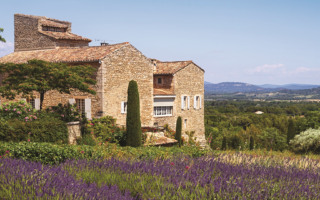The Living France Guide to… meeting the local French community
Making friends with your neighbours can vastly enrich your new life in France. Kate McNally looks at how you can become part of community
You may have chosen to live in a beautiful part of France where the sun shines and the vineyards boast multiple honours, but if you find yourself forever on the edges of the community destined to watch those at the heart enjoying themselves, then these new-found riches will rapidly lose their splendour. You will find yourself pining for friends and family back home before the sun sets on your first semester.
From the off, you need to get out there and find ways to integrate into local life. This can be harder in France, particularly in the rural areas, than in other countries. French people are courteous and friendly with strangers, but they tend to be quite reserved when it comes to taking the next step to form a real friendship. At work and even in clubs or associations, it can take several interactions and a good few months before someone invites you to do something outside work or after a sports match for example.
That said, if you feel you have developed a good contact with someone or a group of people, hang in there, because the French may take longer to welcome you in but once they have, you’re there to stay. If you think of it rather as approaching a potential romance you won’t go far wrong – they don’t want to rush headlong into a relationship without being reasonably sure it will last. Of course, there is the odd coup de foudre!
So, what steps can you take to help things along?
Learn the lingo!
The single most important action you can take to get accepted into any community is to learn the language. In France, it is probably doubly important. The French are a proud nation and they are rightly proud (and protective) of their captivating language. While they recognise that tourism is critical to their economy, they expect visitors to make an effort in their language even if thereafter they are happy to show off their expertise in English. If you have moved into their community to live, there will be an even greater expectation that you should make the effort in their language.
Besides, on a simply practical level, you will need to speak reasonably good French if you want to work, play and generally exist without too much difficulty in the country!
Ideally, try to ensure you have a basic level before moving to France. Once you arrive, immerse yourself in the language: listen to French radio, watch French television and take every opportunity to speak to the locals. It may be tempting to seek the dulcet tones of the BBC and hunt down the nearest English-speaking expat, but if you resist, at least for the first few months, your facility with the French language will greatly improve. Also, if you tune into French life (literally!), you will be able to participate more widely in general discussions.
Lastly, if you can, join a local French class – it will keep you motivated and is a great way to meet other people who are going through similar experiences in a foreign country.
Clubs and associations
Whenever moving to a new area, one of the best ways to meet not just people, but like-minded people, is to join a club or take up a hobby that interests you. Be it cycling, singing, cinema or knitting, go to the mairie or ask your neighbours how to go about joining a group.
Visit the local tourist office and the communauté de communes to find out what activities are available in the area. Consider taking up a new hobby, perhaps one that is specific to your immediate surroundings, if you think it will help you to integrate more closely with the local community or to meet the kind of people you get on well with. If your language level is limited at first, sporting or craft activities are perfect – you can develop a good contact with people without needing too much verbal communication!
Adapt your interests and lifestyle if need be. For example, if you’re used to going for a run in the park on your own, consider joining a running club or the local gym instead, even if only for a limited period at the start of your new adventure.
Contact points
Most daily routines provide potential moments of contact – work coffee breaks, waiting at the school gate, buying a baguette. You can turn these windows of opportunity into a meaningful, if brief, encounter. A ‘bonjour’ is of course de rigueur in France but see if you can open up a conversation (the French will enjoy your accent and appreciate you making the effort), pass the time of day, and when you know the person well enough don’t forget to ‘faire les bises’!
If your village or town has a weekly market, try to frequent it, especially if it is at the weekend. The market is a vibrant, social occasion and not only will you get brownie points for showing support for the micro-economy but you will inevitably come across people you know in a more relaxed environment.
Social calendar
There will certainly be a number of organised social activities throughout the year, for example the summer festival, bingo night (called the loto), an annual bike or car rally. Go along to these events, even if they aren’t your cup of tea, because at least half the village will be there, many of the movers and shakers among them. Notably, should you plan to set up a business in the area, then these occasions are networking dynamite.
Similarly, if you have children in school, there are often fundraising activities to boost school coffers. Get involved, offer to help or organise an event; it is an excellent way to get to know other parents.
Volunteer
Volunteering your services for anything is always well received wherever you are. France has large numbers of local clubs and groups (especially youth sports clubs as there is minimal out-of-hours sports provision in the school set-up) that depend on volunteers to operate. If you have the time and experience, or are willing to be trained, then working even just a few hours a week or month as a volunteer could prove highly rewarding in many ways and will certainly hasten your acceptance into the fold. And for anyone seeking a real challenge, most of the country’s fire service (pompiers) is made up of volunteers!
Why not try?
Accueils des Villes Françaises (AVF) – this organisation was set up more than 50 years ago to help anybody upping sticks and moving to a new area. Run by volunteers – mostly people who have been in a similar situation themselves – AVF provides advice in the run-up to a move and are on hand to help people find their feet for the initial months after their arrival. A large part of the ‘welcome’ is inviting people along to various events, ranging from a weekend walk to a theatre trip, so they can discover what the region has to offer and begin to develop a social network at the same time. www.avf-asso.fr
Université Populaire (UP) – this association has grown in popularity in recent years and has 230 branches across France. It isn’t a university, rather an association that offers a wide range of cultural classes at affordable prices. Run by volunteers, it pays qualified or skilled individuals to teach or share their skills in various subjects, be it a language, cooking, drawing, or politics. People of all ages and backgrounds attend the classes (no qualifications are required and no diplomas are awarded), often coming back to try a different subject the next year, thanks to the feeling of fraternity engendered by UP. www.universitepopulaire.eu
On va sortir (OVS) – a relatively new internet social site in France, OVS is primarily aimed at single people seeking others who want to share an outing. It is not a dating site although some users may find their perfect partner comes along by chance. Focused principally for going out in larger towns and cities, anyone can join and propose an outing, from a drink in the pub to a book discussion, inviting a set number of people to join them at a specific time and place. Other members sign up on a ‘first come, you’re in’ basis and must honour the commitment, or excuse their absence in advance. Anyone misusing the site or abusing the concept is blacklisted. OVS was not created for newcomers to an area but it could prove a valuable way to meet people who enjoy similar activities. www.onvasortir.com
Share to: Facebook Twitter LinkedIn Email


